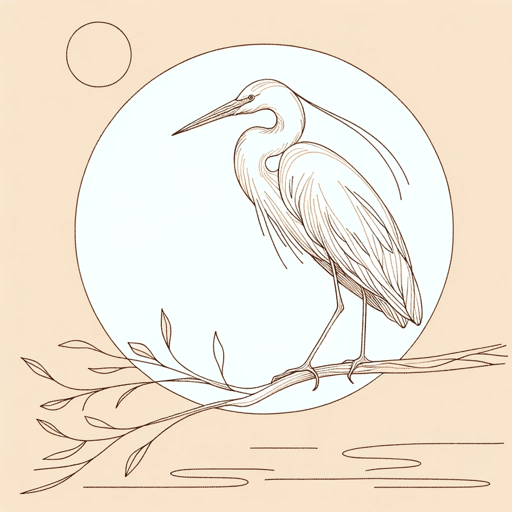32 pages • 1 hour read
Sarah Orne JewettA White Heron
Fiction | Short Story | Adult | Published in 1886A modern alternative to SparkNotes and CliffsNotes, SuperSummary offers high-quality Study Guides with detailed chapter summaries and analysis of major themes, characters, and more.
Important Quotes
“There was hardly a night the summer through when the old cow could be found waiting at the pasture bars; on the contrary, it was her greatest pleasure to hide herself away among the high huckleberry bushes, and though she wore a loud bell she had made the discovery that if one stood perfectly still it would not ring.”
(Page 669)
The cow, Mistress Moolly, is personified in this passage, the first of many uses of personification in the text. The cow isn’t referred to as “it” but rather a “she” and given human characteristics. She takes “pleasure” in hiding, and she is intelligent enough to stand still so her bell will “not ring.” These actions display a smart, elusive personality, qualities that define her as a character.
“The good women suspected that Sylvia loitered occasionally on her own account; there never was such a child for straying about out-of-doors since the world was made! Everybody said that it was a good change for a little maid who had tried to grow for eight years in a crowded manufacturing town, but, as for Sylvia herself, it seemed as if she never had been alive at all before she came to live at the farm.”
(Page 670)
Mrs. Tilley, the “good woman,” builds characterization of her granddaughter through backstory. She describes Sylvia’s enjoyment of being outdoors and her past in a city, a setting that is juxtaposed with the woods. Sylvia feels that she was never “alive at all” before she came “to live at the farm,” which gives a deeper characterization of her feelings of belonging and adoration for the natural world. The passage shows strong themes, voice, and characterization.
“There was a stirring in the great boughs overhead. They were full of little birds and beasts that seemed to be wide awake, and going about their world, or else saying good-night to each other in sleepy twitters.”
(Page 670)
The birds are personified, given the human qualities of being about to speak by “saying good-night to each other” and to be “wide awake” making noises overhead. Sylvia notices their songs and considers the birds’ voices akin to friends.


